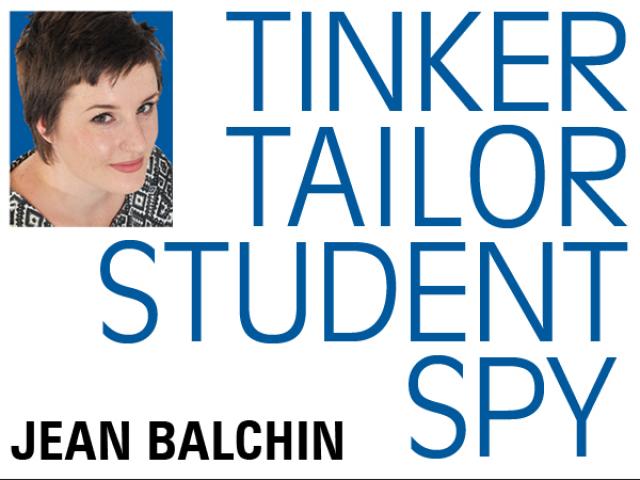
You could cut the tension with one of the ornate silver knives on the white linen tablecloth. And then all hell breaks loose: miscarriages are announced, punches are thrown, flirtatious glances are exchanged between a sexy priest and the main character, before she is engages in a brawl with her brother-in-law. Thus starts season two of possibly the greatest show I have ever watched, BBC's Fleabag.
Fleabag is a British comedy-drama TV series written by, and starring, Phoebe Waller-Bridge. The show depicts a brilliantly sharp and tragically comic young woman living in London. Angry, confused and sex-addicted, Fleabag perpetually finds herself in the oddest situations. The show was adapted from Waller-Bridge's 2013 Edinburgh Festival Fringe one-woman play of the same name which won the Fringe First Award.
Unsurprisingly when it first aired, Fleabag was hailed as anything and everything from the next Bridesmaids to Trainwreck to Girls. It was celebrated as the latest woman-led raunchy comedy by all the feminist blogs, critics and twitter fans. But to me, Fleabag is more than that. Wonderfully witty and cruelly clever, Fleabag is a touching, unique comedy about a complicated young woman. I'm not alone in this estimation.

The first season won accolades, including a Bafta for its creator and star. Emily Nussbaum, of The New Yorker, described it as ''a precision black-humour mechanism, a warped and affecting fable about one single woman's existence'', while Mike Hale from The New York Times praised the show for its ''restless, almost feral energy and its slap-in-the-face attitude''.
''I have a horrible feeling that I'm a greedy, perverted, selfish, apathetic, cynical, depraved, morally bankrupt woman who can't even call herself a feminist,'' Fleabag tells her father. And she's right. But all these vices make for entertaining TV. Fleabag is an abrasive, angry, sarcastic and at times selfish character.
She hits on anything that moves, drinks to excess, tries to seduce a priest and antagonises her godmother with glee. The show is delightfully risque and provocative, exploring the female condition in a wry and witty British way.
Fleabag is unapologetically confrontational about the difficult things in life - miscarriages, suicide, strained family dynamics, extramarital affairs, and most importantly, grief. Fleabag is mourning the death of her best friend, Boo. Her sadness spools out of her and manifests itself in complicated, self-destructive ways.
As someone who has also lost her best friend and partner in crime - my younger brother - I understand. I see so much of myself in the madcap, nihilistic and frankly stupid things Fleabag resorts to in order to distract herself from the sheer pain of loss.
She looks for comfort in all the wrong places: needling her godmother, hooking up with strange men she meets on buses, attending horrendously awkward female-only silent retreats and spiralling into deeper and deeper debt. Those who have experienced grief will know how it comes in alternately in dribs and drabs, and then suddenly in crashing, overpowering waves.
What's also brilliant is the fact that Fleabag looks like she's got her stuff together. She wears sharp, chic clothes, and looks every inch the put-together young London woman, with a bouncy bob and a brilliant red lip. She constantly has a smile on her face, and from looking at her, you wouldn't know that anything is wrong.
Waller-Bridge said of her character: ''I always wanted the feeling of someone who was a scream, a great person to have at a party. If you met in a bar, you'd be like, 'This girl's on top of everything. She's funny, she's witty, she's clever, she's so self-aware. She must be flying.' And then she leaves and someone goes, 'You realise her mother and her best friend died like a year ago?''' It's refreshing to see a different manifestation of grief and loss to that usually depicted on screen.
Part of Fleabag's brilliance arises from the sheer fluidity of its narrative, most evident when Fleabag breaks the fourth wall and lets the viewer in on her perspective. It's a hard device to pull off, but Fleabag's wry smiles to the camera are perfect and hilarious.
We are directly and immediately privy to her innermost feelings as events unfold, whether she is navigating an awkward job interview or restraining herself from punching her sister's obnoxious husband.
Everyone wants to be able to see themselves in a character, to be able to relate to someone on screen. And for me, it's refreshing seeing someone so hopelessly chaotic, yet loving and caring at the same time. The warm female friendships in Fleabag feel so real.
The rapport Fleabag and her best friend Boo (Jenny Rainsford) share is heartfelt and authentic. This might be due to the fact that it's drawn, in part, from real life. Waller-Bridge has said that the show is ''not autobiographical, but it is personally driven''. Moreover, Waller-Bridge's best friend works closely with her, and even directed the play form of the show.
Finally, Fleabag isn't just an annoying and mildly frustrating character. Sure, she does the most outrageous things, from stealing priceless works of art from her stepmother to calmly nicking 20c from her date's wallet. But Flea doesn't intentionally upset those around her. Her chaotic nature and sharp wit are merely coping mechanisms of a sort. They help her endure a world without her mother and her best friend, a world where the people she loves best struggle immensely but refuse her help.
I awoke on Monday with the saddening realisation that the last ever episode of Fleabag was airing. I didn't want to press the ''play'' button. I didn't want to say goodbye to Fleabag, her sister Claire, her father, her hilariously awful godmother, or the sexy priest. But the final episode was brilliant, affecting, sharp and hard-hitting. And as much as I'll miss Flea, I have confidence that Phoebe Waller-Bridge will go on to create equally hilarious and touching characters.
-Jean Balchin, a former English student at the University of Otago, is studying at Oxford University after being awarded a Rhodes Scholarship.












